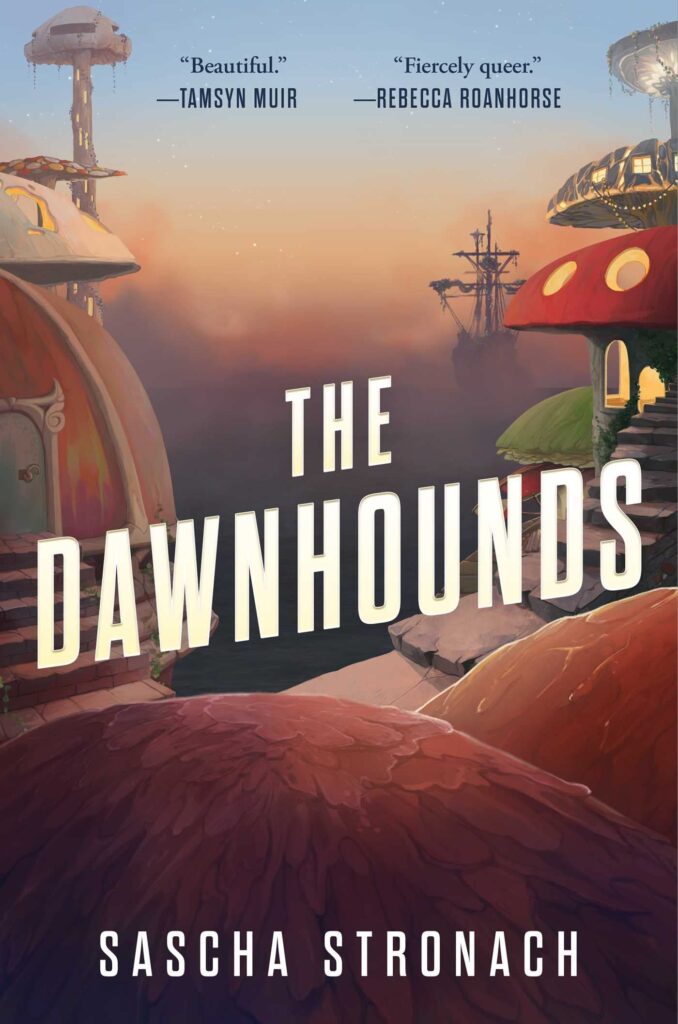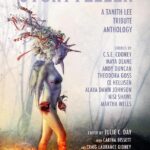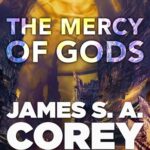
Genres: Queer Protagonists, Science Fantasy
Representation: Bi/pansexual MC, F/F, major sapphic character, major sapphic trans character, minor nonbinary characters
Published on: 14th June 2022
ISBN: B09JPHJ144
Goodreads

Gideon the Ninth meets Black Sun in this queer, Māori-inspired debut fantasy about a police officer who is murdered, brought back to life with a mysterious new power, and tasked with protecting her city from an insidious evil threatening to destroy it.
The port city of Hainak is alive: its buildings, its fashion, even its weapons. But, after a devastating war and a sweeping biotech revolution, all its inhabitants want is peace, no one more so than Yat Jyn-Hok, a reformed-thief-turned-cop who patrols the streets at night.
Yat has recently been demoted on the force due to “lifestyle choices” after being caught at a gay club. She’s barely holding it together, haunted by memories of a lover who vanished and voices that float in and out of her head like radio signals. When she stumbles across a dead body on her patrol, two fellow officers gruesomely murder her and dump her into the harbor. Unfortunately for them, she wakes up.
Resurrected by an ancient power, she finds herself with the new ability to manipulate life force. Quickly falling in with the pirate crew who has found her, she must race against time to stop a plague from being unleashed by the evil that has taken root in Hainak.
I received this book for free from the publisher via NetGalley in exchange for an honest review. This does not affect my opinion of the book or the content of my review.
Highlights
~a ship of magic-wielding pirates
~bin-chicken priests
~the houses are mushrooms
~fuck the police
~what would you do if you couldn’t die?
If I had to pitch The Dawnhounds to someone, it would probably go something like this: queer fungi-punk where dead gods and their unkillable paladins are going up against the cops, the church, and capitalism in general.
It is very fucking cool, and very fucking weird, and seriously, seriously awesome.
Yat is an ex-street kid, now a cop who was just busted down for being caught at a queer club. The world she lives in is extremely strange; Hainak, her city, is made up of living mushroom houses; the scariest guns shoot man-eating grubs instead of bullets; and tattoos have been supplanted (hah) by living greenery that’s merged into human bodies as self-expression. Yat herself is much easier to understand; she’s genuinely out to help people, and truly believes enforcing the rules will do that…but of course, it isn’t so, and dying and resurrection is nothing compared to having those scales fall from your eyes.
Sometimes doing what she could meant following the letter of the law and not one letter more.
Between the Maori influences and Stronach’s creative brilliance, The Dawnhounds has a ton going for it: magic-wielding pirates, sword-canes, sorceress-queens, drugs that make you telepathic, all the queerness you could possibly ask for. There are dead gods and mad gods and at least one god in hiding somewhere. There are conflicting histories, mysterious backstories, and a wonderful, enormous middle-finger to the police as an institution. I’ve seen this book described as noir a lot, and that’s not inaccurate, but I think by the end Dawnhounds has twisted into an entirely different shape and become hopepunk instead. I’m pretty sure the point of Dawnhounds is hopepunk, even if it doesn’t start out looking that way; there’s very much a message of, yep, the world’s fucked up – now what are you gonna do about it? Whereas my understanding of noir is that it’s cynical to the bitter end, and Dawnhounds just isn’t.
“A hero,” she said, “is a young man–and it is usually a man, though not always–who wishes to die loudly. They want everybody to look and say, ‘What a hero!’ and to be remembered. They read too many stories and get this idea in their heads that death is noble and beautiful and glorious. A hero is impatient to die, and in their impatience, they have a habit of taking ordinary folk down with them–after all, death is glorious, and that means killing is, too. Whether they succeed or fail, a hero is defined by death, that’s why I don’t let heroes on my ship. I’d rather teach my people how to live.”
There’s so much incredible imagination here, so many brilliant ideas and concepts that are like nothing I’ve ever seen before. It’s equal parts exciting and beautiful and strange, in the best way.
But it’s majorly frustrating, then, that most of those ideas and concepts are only glimpsed, not fully explored. Things are mentioned then never brought up again; hinted at but not explained. I wish The Dawnhounds had been twice as long so there’d been room to do more than just mention in passing that one character is a living repository for her people’s cultural knowledge, or explain what the hell the pirate captain’s sidequest was all about. Yes, this is the start of a series, so presumably lots of our questions will be answered later, but this feels more like the first half of a first book in a series, not the whole first book.
I read the first edition of The Dawnhounds way back when it was first published by a micropress, and I was excited when I learned it was going to be traditionally published – and expanded. Unfortunately, most of the ridiculously cool things that were cut from the first edition and put back in for this edition aren’t given the room they deserve. So what we get is incredibly tantalising and exciting, but it’s also more annoying than not getting them at all. Although the paperback is allegedly 352 pages, on my Kindle it was closer to 250. The Dawnhounds has been expanded, but not expanded nearly enough, in my opinion.
It occurred to her as she watched him that she did not find men beautiful by default, with women as a defect, nor did she move between men and women; the contours of the body mattered less than the way it moved, how gentle its arms looked, how it made her heartbeat quicken. She loved men and women, not men or women.
None of this stops me from really, really loving this book, and wanting absolutely everyone to read it. The Dawnhounds is both forerunner and game changer, ahead of the pack in so many ways and altering the literary landscape before said pack catch up. It feels ancient and brand new, coming out of left field and simultaneously inevitable, like something we’ve all been waiting for.
Stronach is one to watch, and The Dawnhounds is one not to miss.







Leave a Reply